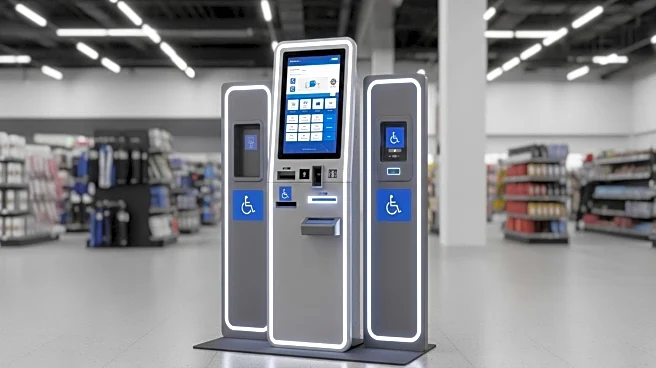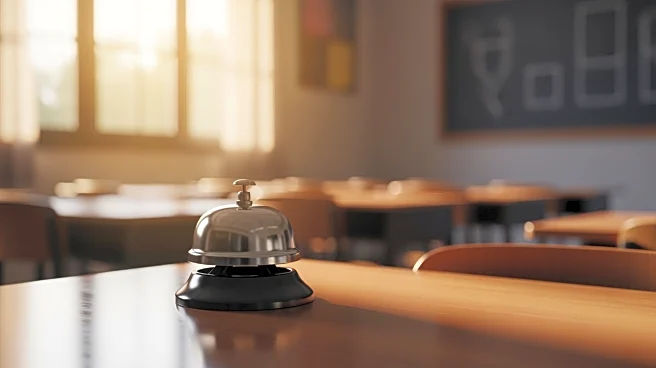What's Happening?
Target has unveiled plans to implement a new accessible self-checkout system across its nearly 2,000 U.S. stores by 2026. This initiative aims to enhance the shopping experience for individuals with disabilities, including those who are blind or have low vision. The new system will feature braille, high-contrast button icons, headphone jacks with adjustable volume, and tactile controllers developed in collaboration with Elo, a touchscreen display company. These additions will provide audio prompts to guide shoppers through the checkout process, ensuring a consistent and clear experience. Steve Decker, Target's senior manager of user experience accessibility, who is blind, played a key role in developing this technology. The rollout is described as aggressive, with over 100 stores already equipped with these features since May.
Why It's Important?
This development is significant as it addresses accessibility challenges faced by millions of Americans with visual impairments. By integrating these features, Target is setting a precedent for inclusivity in retail environments, potentially influencing other companies to adopt similar measures. The initiative not only enhances independence and dignity for shoppers with disabilities but also aligns with broader societal efforts to improve accessibility. This move could increase customer satisfaction and loyalty among disabled shoppers, thereby expanding Target's consumer base. Additionally, it highlights the importance of inclusive design in technology and retail, encouraging innovation that considers diverse user needs.
What's Next?
Target plans to continue the rollout of these accessible self-checkout systems through early 2026. As the implementation progresses, feedback from users will likely be gathered to refine and improve the system further. Other retailers may observe Target's approach and consider similar upgrades to their checkout processes. Advocacy groups for individuals with disabilities may engage with Target to ensure the system meets the needs of all users effectively. The success of this initiative could lead to broader industry changes, promoting accessibility as a standard practice in retail technology.
Beyond the Headlines
The introduction of accessible self-checkout systems by Target may have deeper implications for the retail industry and society. It challenges existing norms around accessibility, pushing for more inclusive environments that cater to all individuals. This initiative could spark discussions on the ethical responsibility of businesses to accommodate diverse customer needs. Furthermore, it may influence public policy regarding accessibility standards in commercial spaces, potentially leading to legislative changes that mandate similar accommodations across various industries.








